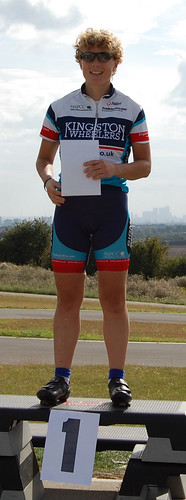A dozen or more people replied with good advice, but having been in this same boat more or less when I started triathlon (strong swimmer, reasonable runner, poor cyclist) I felt a duty to chime in. And while I do question why someone who's never done a triathlon before and hardly rides more than 10km at a time signs up to do an Ironman, I also think that anyone who takes on that challenge should be supported rather than ridiculed.
What I wrote in reply was worth a blog post, as it reminded me just how much I've learned and how far I've come in the past 5 years. The following info is compiled from my own experience, plus various expert sources, particularly Gordo Byrn, Joe Friel, and Rich Strauss. Their view of triathlon training and racing is a big part of how I've become competitive level age-grouper that I am.
Ironman Racing for Beginners
Swimming needs good technique, running needs frequent sessions, cycling needs volume.
- If you can already swim 4000m in 60-80 minutes happily, you're good enough that you should quit swim training NOW and not pick it up again til May/June. Your swimming will not suffer between now and then, and your time is best spent now riding and running instead. The swim makes up only 8-12% of the race, but the cycling part will be nearly 50% of the total day.
- Running is best served with 2-3 short runs and one longer run a week, building up to no more than 2 hours of running at a time. Recovery time after 2 hours starts to infringe on the ability to put in quality bike workouts. Careful attention should be paid to any nagging twinges, etc. from running, and you should back off from run training where needed. Good bike endurance and fitness will make up in part for any lacking run endurance anyway (i.e., being able to do a 6 hour ride comfortably will go a long way towards completing the marathon running, not walking, even if you never run in training more than half the distance).
- Cycling is VOLUME VOLUME VOLUME. It's the sport with the least injury risk and the most to be gained in a short period of time. You should be riding at least 3 times a week, if not 4 or more, with 2 of those rides being long-ish. Between now and August, if you can build up to a weekend with a 6-hour ride on Saturday and a 4.5 hour ride on Sunday, that will make your chances of completing the IM much better. Any shorter rides you do (2 hours or less) should be done with faster paced intervals included. Build fitness at LT and the fitness at endurance level zone 1/2 will follow. I can't emphasise enough how important is it to find time to cycle, either by lengthening your commute (especially in the afternoon now that the days are getting longer) or getting on the turbo/getting outside in the evening. Given that the course for IMUK has a great big hill on it (to be done 3 times) and some open bits that could get windy, you should structure your training rides appropriately -- do hill training, and do flat open against-the-wind training to build muscular endurance.
Once fitness is built, don't blow it with a bad taper.
- no more positive training adaptations can come within 14 days of the race, and it's better to go into the race 10% undertrained rather than 1% overtrained, so you need to taper very very well. Small amounts of intensity during the last 2 weeks before the race, but volume comes right down.
Nutrition and hydration are just as important as being able to swim, bike and run.
- practise, play around with, test everything you're going to eat and drink on race day during training. 5 and 6 hour rides are the best way to find out what works and what doesn't. You have to learn about yourself and what your water and fuel needs will be or you could spend a very miserable day out there bonking/dehydrating/overhydrating/vomiting/in the med tent DNFing.
Go into the race with a plan and stick to it.
- go easy in the swim and even easier on the bike. After 75 miles it will feel hard enough! Then easy on the run til you know you're going to finish the race. Even with the pros, the "true race" doesn't start til the second half of the marathon. I can't count the number of people who flew by me on the first climb of my IM last year, only to be seen walking the marathon hours later (as I ran by them strongly). It's a 12-16 hour race for most people, so treat the first 4-5 hours of it accordingly.
Of course there's a lot more that can be said about Ironman racing (witness the store shelves full of books about it, not to mention at least 3 major monthy magazines filled with articles and training plans). But if I had to sum up the basics, this is it.

2 comments:
I would suggest adding doing a thorough check of bike tires too before the race itself. Or is that just plain common sense??
Great advice - very sound.
Post a Comment